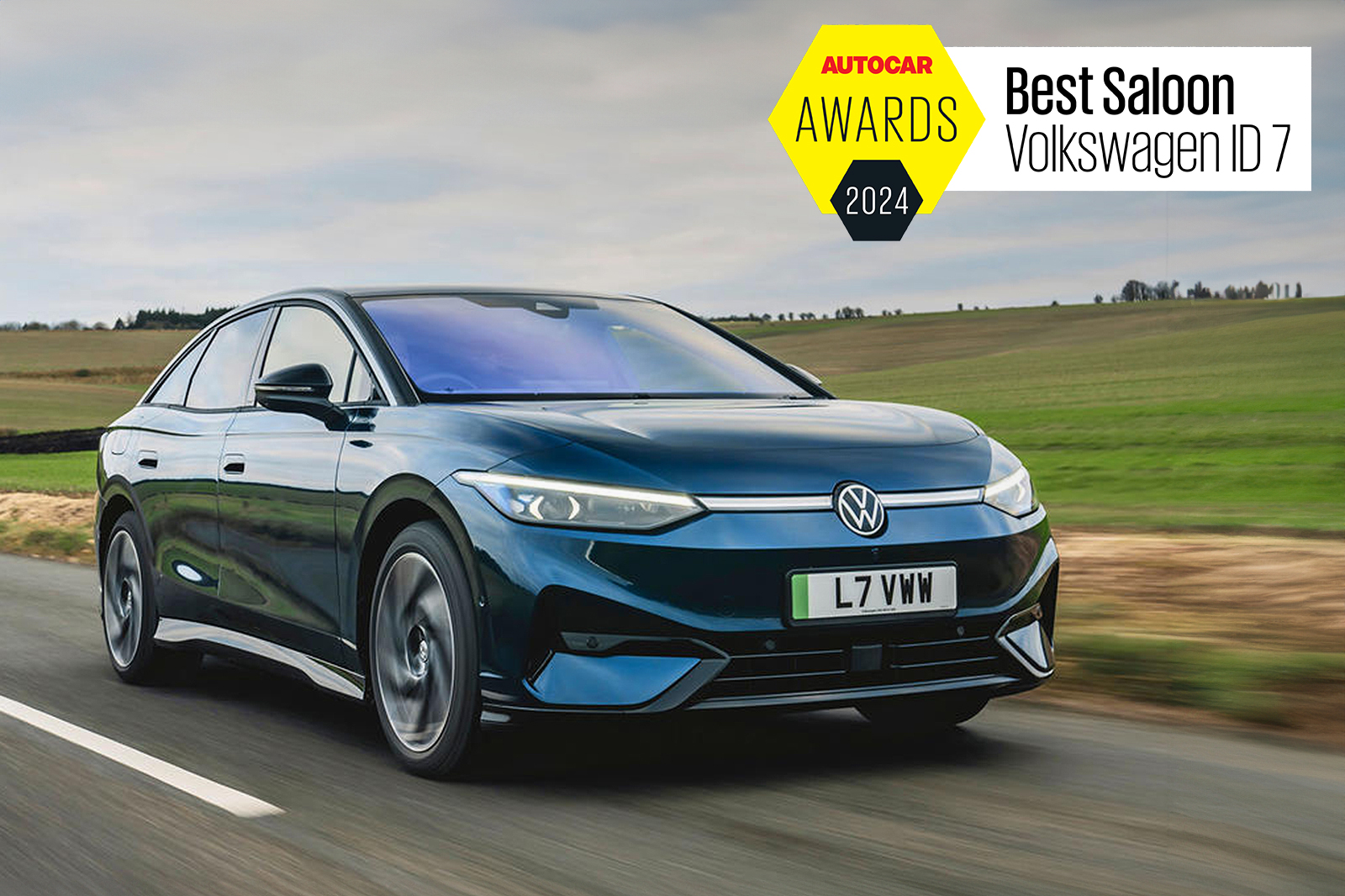Sliding aboard the ID 7 gives you the first sense that this is a car that quietly delivers.
With a new 15in ‘floating’ touchscreen and a small digital binnacle embedded in the dash, the cabin generates the sort of light-infused atmosphere for which the Tesla Model 3 is rightly celebrated, but underpins it with a familiarity and warmth that mitigates any risk of feeling spartan.
Ergonomics are broadly excellent, both in terms of the driving position, which is usefully perched but soft and supportive, and of outright space. Certain rivals have a little more leg room (the back of the ID 7 is far from meagre in this sense, mind) but they fail to combine it with such generous reserves of head room.
Large quarterlights and a panoramic roof enhance the VW’s sense of limousine-like insouciance, though slimmer A-pillars would make the effect more pronounced and allow better visibility during parking.
Special mention also needs to go to the optional Ergoactive seats. They are truly superb, with a plush velour upholstery, massage functionality, both heating and ventilation and an endlessly comfortable profile. For a car positioned as a long-distance EV, they are wholly appropriate – and surely essential.
Elsewhere, VW has made improvements to the functionality of the touchscreen, even if volume and (now backlit) cabin temperature are still controlled by touch-sensitive sliders.
At 532 litres, boot space is also class-leading, though the ID 7 has no ‘frunk’, which is always useful for charging cables. A wide, squared-off opening and second-row seats that almost fold flat make this a fine tip-run steed.
The Tourer version increases the boot capacity to 605 litres, which is more than the BMW i5 Touring (570 litres) offers. It’s also more luggage space than the Volkswagen ID 4, just as a reminder that SUVs aren’t actually as practical as some people think. It’s a decently usable space, as well, if not as capacious as some more slab-sided estates with stretched bodies.
If the interior of the ID 7 has a notable weakness, it concerns material richness. It can often feel like you’re inside an enlarged, well-optioned Golf – which is fine so long as you’re not expecting comparisons with the likes of the BMW i5 and Mercedes EQE.
There is a material richness that’s lacking, and some cheaper plastics degrade the cabin’s tactile appeal in a way that the car’s well-executed, configurable ambient lighting could never quite make up for.
Infotainment
The new 15in touchscreen is an all-dominating system integrating almost all of the car’s climate control and driver assistance functions – something that, as a rule, we are generally critical of.
Thanks to some fairly fundamental top-level navigability improvements that VW has made as a result of consulting with its customers, though, the touchscreen is now easier to use.
ermanently displayed, user-configurable menu bars give you direct, one-touch access to frequently used functions. Disabling the now-mandatory speed limit assist system is a one-second, two-touch process free of swiping or scrolling (and even if you leave it on, it’s surprisingly progressive and discreet).
Pretty much any function you want can either be displayed directly on the home page (a long press lets you swap one ‘button’ for another you will find more useful), or accessed within one finger prod of it. We complained, VW listened – and acted.
Moreoever, this same software will go onto the lesser, 13in screens of other VW models too, praise be.

